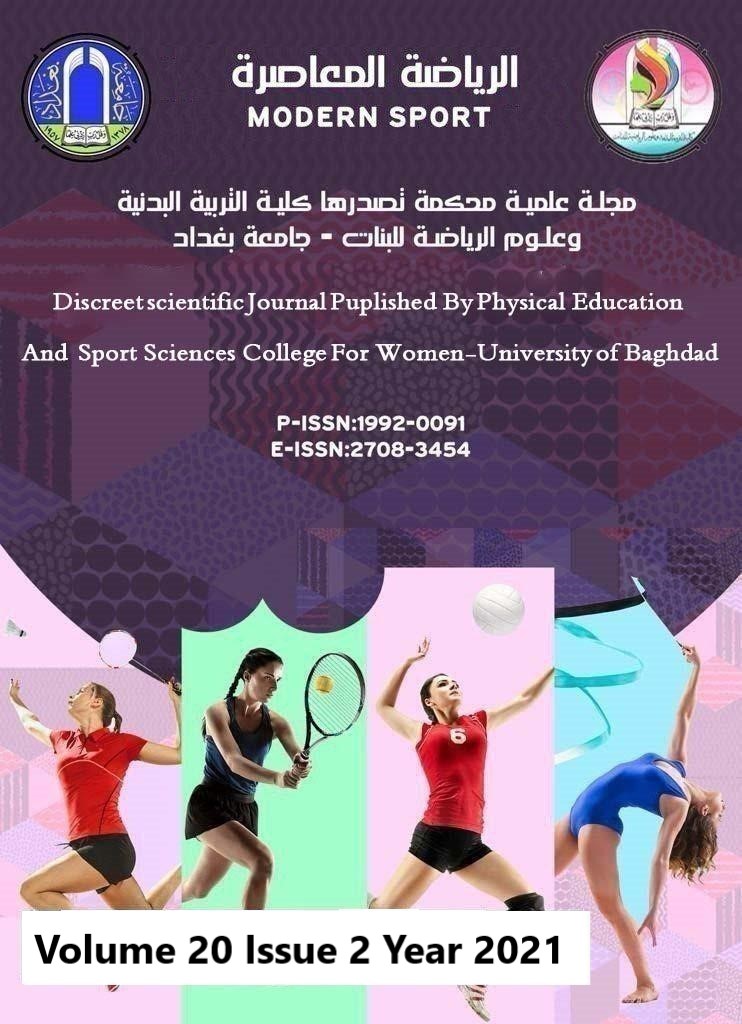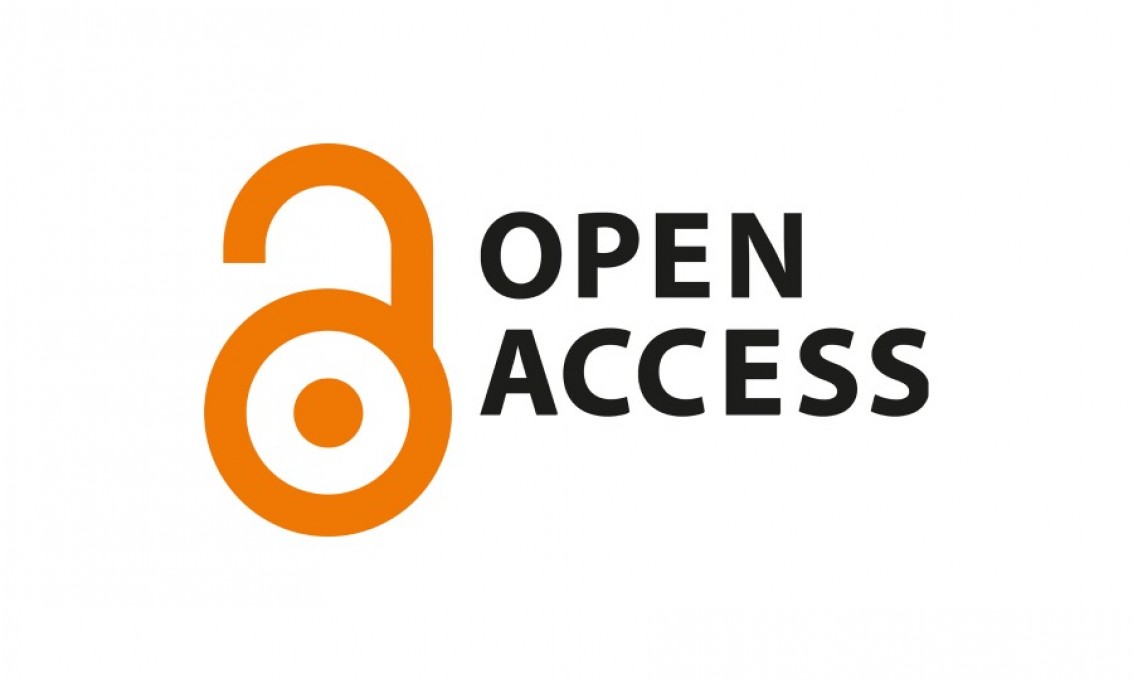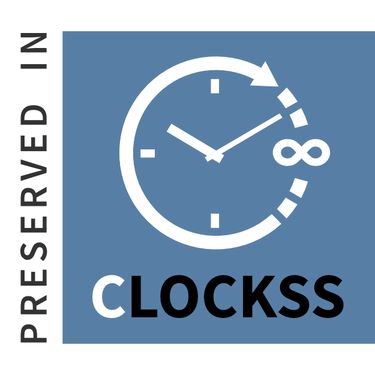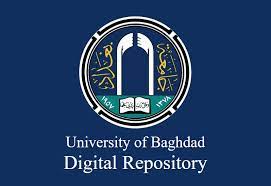أثر إستراتيجية شبكة الأسئلة وفقاً للسعة العقلية في قوة السيطرة المعرفية في مادة طرائق التدريس التربية الرياضية لطلاب المرحلة الجامعية
DOI:
https://doi.org/10.54702/msj.2021.20.2.0001الكلمات المفتاحية:
قوة السيطرة المعرفية، التحصيل المعرفيالملخص
هدفت الدراسة إلى التعرف على السعة العقلية لدى عينة البحث وتصنيفهم لاغراض الدراسة، إعداد مقياس السيطرة المعرفية لمادة طرائق تدريس التربية الرياضية، وإعداد وحدات تعليمية باستراتجية شبكة الأسئلة لمادة طرائق تدريس التربية الرياضية، وأُعتمدَّ المنهج التجريبي بالتصميم التجريبي العاملي (2×2) للمجموعتين المتكافئة (تجريبية) و(ضابطة) حسب المستوى المرتفع والمنخفض من السعة العقلية، تتمثل حدود مُجتمع البحث بطلاب المرحلة الثالثة لقسم التربية البدنية وعلوم الرياضة في الدراسة الصباحية من كلية المعارف الجامعة الأهلية المُستمرين في الدوام المُنتظم للعام (2019-2020) البالغ عددهم (150) طالب ولمتطلبات الدراسة في اعداد ادوات القياس، أختير منهم مجموعاتٍ ثلاث (عينة بناء وتحليل إحصائي) (80) طالب، وإستطلاعية (10) طلاب، و(60) طالب للعينة الرئيسة التي صُنفت بمقياس السعة العقلية إلى التجريبيتن تدرس منهما باستراتيجية شبكة الاسئلة، والضابطتين بالاسلوب المتبع، وأعدت الباحثتان مقياس قوة السيطرة المعرفية بخطوات منهجية متسلسلة ومعالجات احصائية عديدة ليكون ملائم لعينتها، ومن ثم أعدتا منهج تعليمي للمادة النظرية تدرس بها الطلاب في غرفة الصف وخطة تطبيقية لهذا المنهج تُدرس بها الطلاب في القاعة الرياضية بمعدل وحدتين في الأسبوع ولكلٍ منها وحدة واحدة ليتلقى الطلاب التدريس بأستراتيجية شبكة الأسئلة (6) وحدات نظرية، وبعد الانتهاء من اعداد وبناء ادوات القياس وتجربة الدراسة تحققت الباحثة من النتائج بأستعمال نظام الحقيبة الاحصائية (SPSS-V26) لتكون الاستخلاصات والتطبيقات أن مقياس السيطرة المعرفية هي أداة صالحة لقياس طلاب المرحلة الثالثة لقسم التربية الرياضية لتحقيقها الشروط العلمية على وفق محددات القياس والتقويم، وتطبيق إستراتيجية شبكة الاسئلة في تدريس مادة طرائق تدريس التربية الرياضية تساعد الطلاب الذين يدرسون بها في تحسين مستوى قوة السيطرة المعرفية لديهم، وتفوقهم بتحسنهم هذا على الطلاب الذين يدرسون هذهِ المادة بالاساليب المُتبعة معهم في الدرس، وإن إستراتيجية شبكة الاسئلة تكون أكثر ملائمةً مع الطلاب ذوي مستوى السعة العقلية المرتفعة في تحسين مستوى قوة السيطرة المعرفية، وتراعي الطلاب ذوي مستوى السعة العقلية المنخفضة في هذا التحسين، ومن الضروري مراعاة فروق الفردية للطلاب بمستوى السعة العقلية عند تحسين السيطرة المعرفية في تدريس مادة طرائق تدريس التربية الرياضية
المراجع
- Tamara Abdul-razzaq. (2012). Mental capacity and contemplative thinking and its relationship to academic achievement among postgraduate students, doctoral dissertation, University of Baghdad, College of Education, Ibn al-Haytham.
- Zainab Shinan Raheif. (2015). The effectiveness of a perseverance training program for people with different mental abilities in directing achievement goal orientations among female middle school students: a doctoral thesis, University of Baghdad, College of Education for the Humanities.
- Salih Mohammed Ali. (2003). Educational Psychology, 3rd edition: Amman, Dar Al-Maysara.
- Adil Abdullah Mohammed. (2016). Foundations of scientific research in light of the amendments contained in (APA5): Al-Riyadh, Dar Al-Zahra.
- Adnan Yousif Al-attoum et al. (2011). Educational Psychology, Theory and Practice, 3rd edition. Amman, Dar Al Masirah for Publishing, Distribution and Printing.
- Izzo Afana & Naila Al-Khizindar. (2009). Classroom Teaching with Multiple Intelligences. Amman, Dar Al Masirah for Publishing, Distribution and Printing.
- Aqeel Mahmoud Al-Rifay. (2012). Active learning concept, strategies, learning outcomes: Alexandria, New University House.
- Ali Rajih Barakat. (2012). Bandura's theory of social learning: a studies journal, issued by the Department of Psychology/Umm Al-Qura University.
- Ali Saqar Al-Khuzaay. (2015). The causal relationship between the strength of cognitive control and successful intelligence among university students: Al-Qadisiyah University, College of Education, Volume (8), Issue (2).
- Mashi Mohammed Al-Shammari. (2015). Strategy in active learning. Riyadh, Ministry of Education Press.
- Muhsin Ali Atia. (2016). Learning styles and modern models. Amman, Dar Safaa for Publishing and Distribution.
- Mohammed Shihata Rabea. (2010). Fundamentals of Psychology. Amman, Dar Al-Maysara for Publishing and Distribution.
- Wijdan Sabeeh Hussein. (2019). The strength of cognitive control and psychological endurance and their relationship to the ability to solve problems among national team players in some team games. PhD thesis, University of Baghdad.
- Yousif Qatami. (2010). Cognitive theory of learning; Amman, Dar Al Masirah for Publishing, Distribution and Printing.
- Ahmed Al-Said Kurdi. (2012). Self-control and gaining confidence, p. 1, article published on the website: http://kenanaonline.com/users/ahmedkordy/posts/137341
- Larsson H, Viding E, Rijsdijk FV et al. (2011). Relationships between parental negativity and childhood antisocial behavior over time, Vol (2), No (4)
- Zhang, L-F. (2003). Thinking Styles. University Students Preferred Teaching styles and Their Conception of Effective Teachers, Journal of Psychology, vol.138, No.3
التنزيلات
منشور
إصدار
القسم
الرخصة
الحقوق الفكرية (c) 2021 الرياضة المعاصرة

هذا العمل مرخص بموجب Creative Commons Attribution 4.0 International License.














